#5.1.20
Text
The one in which Hugo tries to explain why some insurrections fail.
Meanwhile, our barricade goes through the death agony. Some of Hugo’s descriptions are painfully beautiful, like the contrast between the summer weather with an amazing “sky filled with sun and clouds” and the violent attack at the barricades. I love how he mentions that the tocsin of Saint-Merry “had the accents of a sob.” And this brings another contrast – with the dead silence of the houses, which turned into fortresses, unwilling to open the doors and let insurgents in.
After that Hugo ascends into the stratosphere and proposes his understanding of the failure of 1832 revolt. It was not the right moment; people were not ready. As a historian, I hate his grand-narrative explanation based on notions such as Progress, Providence, and an act of God. He also projects his own feelings and sympathies onto Les Amis, stating that they were not against Louis Philippe and “did justice to this king.”
And the last paragraph seems rather self-deceptive. Hugo claims that his book is “the march from evil to good, from the unjust to the just, from night to day, from appetite to conscience, from rottenness to life, from hell to heaven, from nothingness to God.” Aha, it’s especially “just” that Thénardier not only survives but is rewarded and becomes a slave-trader in America. I will not mention other spoilers, but there are moments that do not quite align with this claim.
15 notes
·
View notes
Text
Closed doors are never a good sign in a novel that begins with the life-changing importance of hospitality, and that’s true here as well, where these closed doors transform the barricade’s surroundings into “walls” instead of “houses.” The metaphor of plague is a fascinating addition, as if rebellion were contagious and needed to be kept out with a sanitary cordon (this was a metaphor used at the time as well!).
Hugo seems to be accusing Les Amis of “rushing” Progress and the people, but also excuses that because their cause is a noble one. On the one hand, this is one of my issues with his concept of Progress, as it assumes that things will improve naturally and that they must happen at a certain, unknown time, but on the other, it offers hope that things will change, because they must. As Hugo says, “He who despairs is in the wrong,” suggesting that what’s shaping up to be a defeat for the barricade isn’t a final one and that their ideas will eventually prevail.
Hugo’s also responding to his contemporaries, as some of them framed any failed rebellions as causing problems unnecessarily domestically and internationally. As much as Hugo loathes violence, he points out that revolutions are named and judged by their successes. There is not as large a difference between the “glory” of the French Revolution and the “riot” we see here, but one is condemned because it failed.
He continues to defend Louis Philippe, too, which just seems funny at this point. But he is responding to an important point! The barricades were not a personally motivated phenomenon; they were an expression of social and political ills that exploded in 1832. Louis Philippe was not uniquely hated or the target of the protests, but the unjust system that he headed was.
And in saying they’re more like “Leonidas” than “Don Quixote,” Hugo honors their sacrifice as a form of martyrdom rather than an act of folly, implying that in spite of their deaths, there was value in what they did. By extension, there is always value in protest, even if it’s unsuccessful.
There’s a lot of racism here in Hugo’s talk of “races” and his classification of nations that love “Progress,” repeating many of his earlier Orientalist points.
His parallel between the barricade and exile, though, is particularly moving with the knowledge that he wrote this in exile.
15 notes
·
View notes
Text
Brickclub 5.1.20 “The dead are right and the living are not wrong”
The Utopia that grows impatient and turns into riot knows what awaits her; almost always she is too soon. Then she resigns herself and stoically accepts, instead of triumph, catastrophe. She serves, without complaining, and even exonerating them, those who deny her, and it is her magnanimity to consent to desertion. She is indomitable against hindrance and gentle toward ingratitude.
I have no evidence to back this thought up, but it’s Fantine: te spirit of Utopia turning to insurrection is Fantine. She believed in too much hope; she ended up walking patiently back and forth in a ballgown in the snow, uncomplaining; she turned to riot against mistreatment.
And then we’re on ingratitude, Marius’s watchword and the burning coal inside him that motivates him to do all the stupidest things he does.
But this is an idea of a mass ingratitude rather than an individual one; the individual doesn’t feel this one at all, unless they’re thinking as a collective. Marius doesn’t understand things beyond individual debts, and even by the end of this book there’s no evidence I can recall that he gets any closer.
..And then we get to the march of Progress being the general condition of the human race, and I have to check out again. Man, I didn’t start this book fucking hating the word Progress, but I sure do now.
(To recap: It’s colonialism hand in hand with everything Europe thought the Industrial Revolution would do for it. It’s the force that tries to stamp out every group of people on earth who isn’t doing that shit and then pats itself on the back for moving the world another inch forward. Fuck Hugo’s notions of Progress forever.)
I don’t disagree with his point that stasis is illusory and change is the condition of everything everywhere--but I really, really fucking distrust that idea of Progress looking a certain way and forming an ideology that condones really, really heinous shit. I also extra hate his corollary to the idea of Progress, that the progression ends eventually in a designated place where all is perfect and nothing needs to change anymore. I lived through an era that called itself the End of History; it’s a shitty ideology that leads to Bad Things.
Change, for both better and worse, forever, seems to me both inevitable and less awful than that.
Because Hugo thinks Progress is inevitable, he runs again into the rift at the heart of Combeferre--he even restates (somewhat more coherently) Combeferre’s arguments about the stains of justified murder and the confusion of Utopia taking up arms.
The thing is, if Progress isn’t inevitable, you don’t have that confusion. There isn’t the French Revolution vs. something-something-the-exact-same-results-as-the-FRev-but-arrived-at-peacefully-some-time-later. Yeah, the currents in society are real, and would have been real whether or not things conflagrated at exactly that moment, and those currents are as big a part of change as the events you can point to... but there isn’t some other thing happening instead of that, that these human moments are some kind of proxy for.
If there is no overriding current towards a predestined end-point, people’s efforts to change the world can stand alone as efforts to change the world--be that for better or worse, too soon or too late, with good methods or bad, all according to the values of the individual observer.
It all just feels a whole lot simpler than whatever Hugo thinks he’s doing.
I also resent his idea that these fights are always about the Ideal first and foremost. It’s not wrong, exactly; ideology and people’s sense of what they’re fighting for matter hugely. But there isn’t something wrong about fighting for, say, better working conditions, or for the sake of not starving this week. His focus on the ideal instead of the more proximate and more urgent causes takes the fight away from the workers and the poor and gives it to the bourgeoisie. Which is a problem he has a lot.
And I resent the jabs against effeminacy. And the Obvious Superiority of France stuff.
We’re at the heart of Hugo’s central thesis for the book, or one of the hearts of it at least, but I just find myself stuck fighting Hugo about our most basic assumptions again. :(
#brickclub#lm 5.1.20#not really sure i got anywhere with this#i just see the word 'progress' now and start fighting#it's an ongoing problem
9 notes
·
View notes
Note
as a big les mis fan, i have loved your blog for ages but recently you have especially piqued my interest - in your recent explanatory amis post, you referenced historical metacontext around jehan's death being first. i have a theory about what that metacontext is, but i am FAR from certain and hoping you could offer me some clarification
(also do you have any other pieces of interesting historical metacontext to share with the class)
OK you gotta tell me your Theory too!!! if it lines up or it was something totally different , I wanna hear it alllll
anyway! it's pretty solid that Prouvaire as he finally appears is largely an homage to Hugo's old friend Gérard de Nerval, who had died in 1855; a LOT about Prouvaire's description overlaps with how people talk about Gérard, and the conversation where he's arguing with everyone about the old gods still existing lines up EXTREMELY with conversations that other people remembered having with him ; there's THIS :
Jean Prouvaire was in love; he cultivated a pot of flowers, played on the flute, made verses, loved the people, pitied woman, wept over the child, confounded God and the future in the same confidence (LM 3.4.1, Hapgood)
“God is dead, perhaps,” said Gerard de Nerval one day to the writer of these lines, confounding progress with God and taking the interruption of movement for the death of Being.(LM 5.1.20)
(Hugo still trying to still have this conversation with his friend via novel guts me more than a little!! People are people and we never stop wanting to find the right thing to say oh geez I'm crying for real)
Bahorel , who dies in the same first-charge attack that takes Prouvaire, is also a (even more obvious) homage to a friend; Petrus Borel , who had died in 1859.
They're considered pretty minor figures today, but they were both really noteable names in their day, which is to say...about the late 1820s/early 1830s; they were two of Hugo's most trusted lieutenants in the battle of Hernani, held in French Romantic memory as a breakout event for the movement. And, importantly, they were the first of that core group of more radical Romantics to die.
So while i think there is a lot going on character- and symbol-wise with them being the first two Amis down, I also think there's definitely an Acknowledgement in them being the first of the named group to go; they get the sort of heroic deaths they'd have liked, and maybe the closest thing to Good deaths on the barricade until OFPD? and agh I'm emotional, QUICK tell me your theories before I start crying harder
#Poetry Smash#they get to leave the scene while everyone's still got honest hope for success#by the time more named characters go they know. we all know#not this time. It wasn't your time it wasn't for you#(at least you did everything you could do)#but Prouvaire and Bahorel die with the future so close they can call it#or stand between it and death#before despair and before doom#and on a practical level I would never argue it changes things#but on a symbolic level I think it does#also: they don't NEED the barricade like some do#they show up together. they go together. They're ready already#EMOTIONS#APPARENTLY#Jehan#Bahorel#Actual Romantics in Fictional Paris
70 notes
·
View notes
Photo

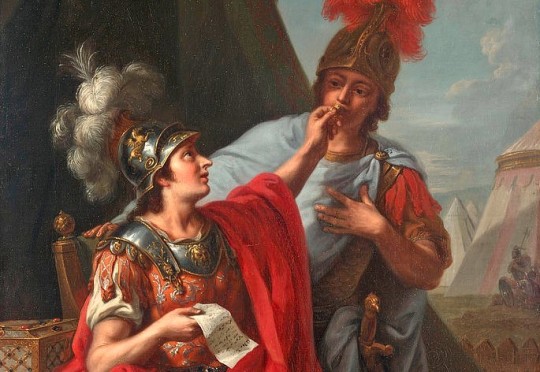

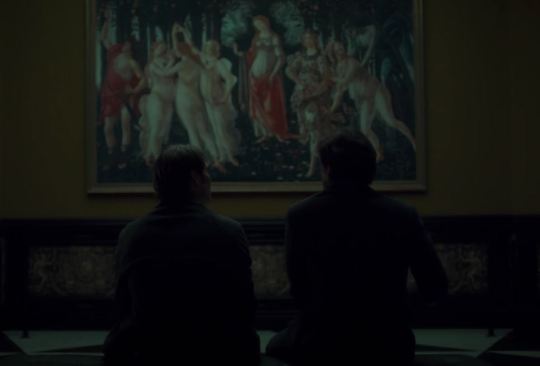


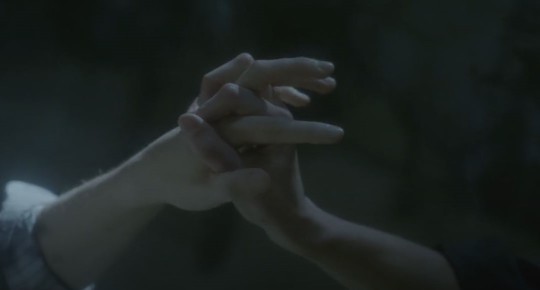
FRIENDSHIP COLOURED BY ROMANCE
1. christopher marlowe, edward the second
2. johann heinrich tischbein, alexander putting his seal ring over hephaestion's mouth
3. oscar wilde, the portrait of dorian gray
4. hannibal, s03e06
5. homer, the iliad
6. diogenes laërtius 5.1.20 on aristotle
7. fantastic beasts: the crimes of grindelwald
#christopher marlowe#alexander the great#hephaestion#alexander x hephaestion#oscar wilde#the portrait of dorian gray#hanniba#hannigram#the iliad#aristotle#fantastic beasts: the crimes of grindelwald#grindeldore#gellert grindelwald#gellert grindelwald x albus dumbledore#patrochilles#Achilles x Patroclus
700 notes
·
View notes
Text

Jeffrey in Cameron Azoff’s Insta Story. 5.1.20
159 notes
·
View notes
Text
My Top 10 Anime of 2019
Another year of anime’s over, and before I get my picks for Top X of the decade or whatever, I think 2019 deserves its own wrap up too. It’s worth mentioning that because a certain 2 shows’ last episodes got delayed, my Fall 2019 Season in Review isn’t out yet, but shows from Fall are obviously eligible and you’ll hear perhaps fuller opinions on any of my Fall shows that are in this list if you read that post when it comes out, and also you can read my other Seasons in Review this year for fuller thoughts on the other shit. For now though, we’re talking about this. And semi-coincidentally, today, the 5th of January, is the same date that I posted my Top 10 of 2018 when that happened. So hey, that’s pretty cool. Not only that, but actually coincidentally, I watched 40 shows this year, exactly the same amount as last year, albeit this year I dropped 7 as opposed to 14, so that’s 33 shows that are viable for this list, minus the 2 that haven’t finished for 31, though those 2 definitely weren’t fucking making it lol. So let’s uh, let’s get going.
10. Sarazanmai

Starting off we’ve already got a really weird, unconventional show, but one that really sort of stuck itself in the back of my mind as the year went on. Despite airing a mere 11 episodes way back in Spring I’ve managed to not really forget about this one, the catchy music and jingles, the extremely bizarre presentation of a fairly simple narrative with an interesting overarching theme, and really great character writing all around. The show definitely explores its 3 main leads in great depth and covers their relationships with themselves and the people in their lives in even greater depth, resulting in some surprisingly emotional highs for a show where the first 5 episodes are more or less identical. I don’t want to be the guy that sells a show on “weird” but it for sure has quite a lot more going on than the surface level that I can’t say I fully understood, but that surface level is god damn enjoyable and hey it’s always nice to have more going on than the surface. Good time.
9. Dumbbell Nan Kilo Moteru?

So this year’s a hell of a change of pace from my favourites last year in that this show right here is one of only two cute girls doing cute things shows on this list. Ain’t that fucking weird? But yeah, cute girls do workouts and muscle building at the gym. And it’s a great time! The girls are really adorable, it’s got maybe the best male characters in any cute girl anime I can think of, the humour’s on point for basically the entire show, it’s legitimately educational without being massively distracting, and it’s unabashedly horny because yeah, muscle girls are hot, Doga Kobo aren’t afraid to show that. And it also feels so weird to say it, but main character Sakura Hibiki, yeah her seiyuu’s performance is one of the best of this year, which is so not what you expect to hear about a cute girl gag comedy thing. Fuckin, great time.
8. Re:Stage! Dream Days

I feel like I’m the only person in the world with this in their top 10, my god. I’m sure some people have checked out and dismissed me as an idiot because of this pick alone lol. But it’s a really fun show! It’s a show where I struggle to tell like, how self-aware the writers were, because the show’s often a genuinely stupid dumb idol show with silly stock characters that just get up to cute moeshit, but then the humour’s mostly kind of like, “god these moeshits sure do dumb shit or are smart in really dumb unrealistic ways that impress everyone” and it feels like the writers know what’s up, but not in a way where it’s just like “haha shoulder nudge” type thing. I don’t know what this show is other than adorable and cute and I really like it and I don’t know if it’s an ironic thing because I tend not to enjoy things “ironically” so if it is ironic then like I don’t know how to deal with it? Show’s a great time, best worst idol show I’ve ever seen.
7. Carole & Tuesday

This is a show I know will be topping a lot of people’s lists, and though it didn’t touch me quite like it touched many others, I still really loved it. The titular duo are probably the second or maybe third most enjoyable pair of characters this year, and seeing them go through their story of trying to enter into the music industry because they have something to say, things that tie into their respective backstories, things that have a meaningful impact on the society the story’s set in, it’s great. It’s a 5 minutes in the future type story, and yet with how much of the story is truly about music, more than any other show I’ve ever seen, it feels like a story that’ll be considered timeless. I sure as hell enjoyed it, and I’m not even that into music. I think it does have a problem with its pacing, the second half in particular wastes a lot of time on pointless characters and sideplots that go nowhere meaningful, but it’s a fairly minor thing in an otherwise enjoyable show with mostly memorable and super distinct characters, and a satisfying ending. Love it.
6. Dororo
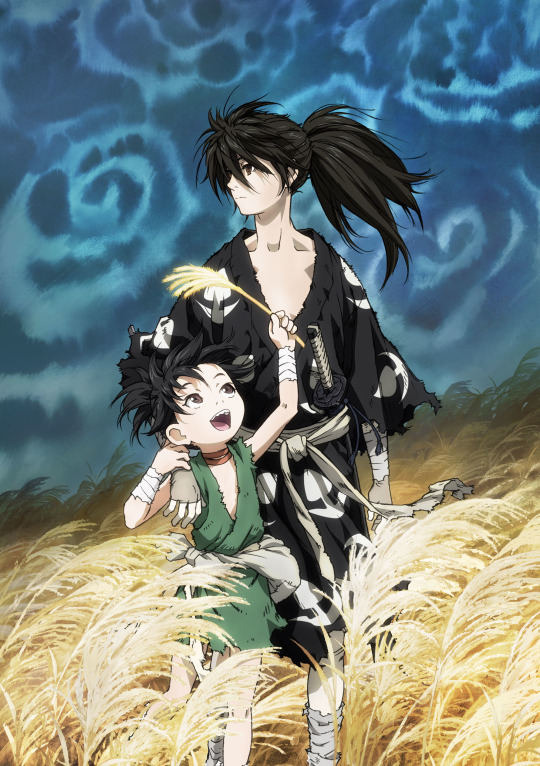
I didn’t expect to like this show even close to as much as I did. Which is weird, because it sounds so fucking cool. A feudal lord gives up his son’s entire body for the prosperity of his land, resulting in a kingdom built on the sacrifice of one innocent baby, and now the baby, with no eyes, nose, mouth, arms, legs, skin, etc, grows up to be a warrior who wants revenge, and can get his body parts back by slaying demons? Also his arms are swords? That’s fucking badass, and a great lens to talk about utilitarianism and hedonism as concepts. Is it right to sacrifice one for the sake of thousands, or was that one wronged, and has every right to get what was stolen from him at the cost of those same thousands? And with almost every key player in this conflict being part of this one family, including particularly an awesome younger brother whose negative character arc as a result of his pursuit of one answer is, it’s just fucking god tier. Also, despite the visuals faltering quite a lot during the last third of the show (though thankfully the finale still looked awesome) the show has brilliant art design, it’s got a very old Japanese feel to it, and the washed out colours fit the sort of nihilistic feel to the show. It’s a phenomenal show and the fact that it’s not top 5 speaks to the quality of the shows coming up more than anything else.
5. Given
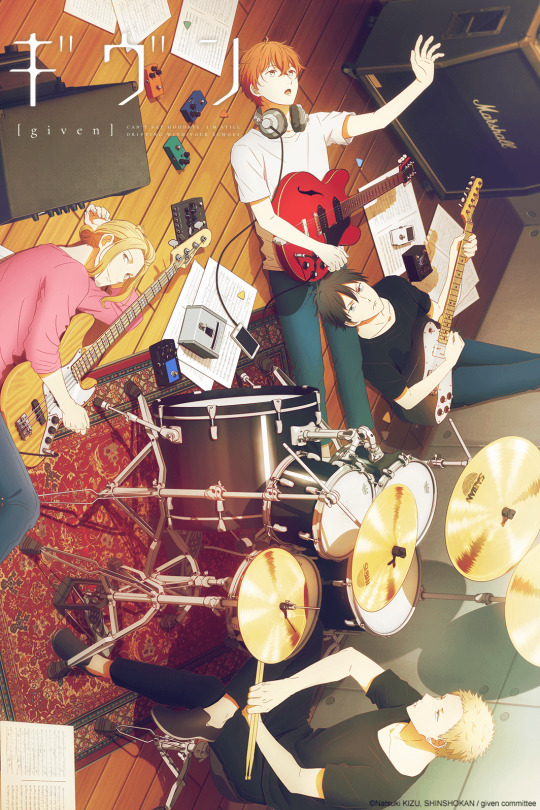
I definitely didn’t expect to like this show as much as I did. A boy’s love show being not just something I love, but in my top 5 for the year? Beating out Dororo and Carole & Tuesday even? Sounds fake honestly. But this show’s just, just brilliant. It’s closer to a slice of life with a male cast than it is anything BL tbh, though there’s still BL, gay kisses on the lips, characters talking about very homosexual feelings, thinking very homosexual things, you know, but by and large it’s like, almost iyashikei? The show’s very, warm. The colour palettes are warm. The characters are comforting, even when it gets pretty heavy with mentions of suicide and characters kind of fighting, there’s still sort of a sense that everything’ll be okay. The show doesn’t even look especially good and yet it feels like something from Kyoto Animation, albeit with less cute girls. Instead, we’ve got cute boys. And I think it’s all really well written, having seen a fair amount of anime where “gay anime boys” just means “overly affectionate anime girls, but with dicks”, I really appreciate that Given feels like it stars a cast of actual boys. And men even, because Given also has 2 college aged characters in it that, although they don’t quite get their resolutions, we’ve got a movie coming up for that though, they’re still nicely developed and feel like comparatively matured personalities that really add to the narrative. Also this is the only show on this list that I’ve rewatched, and it was even better when I did that so. Shockingly fantastic time.
4. Vinland Saga
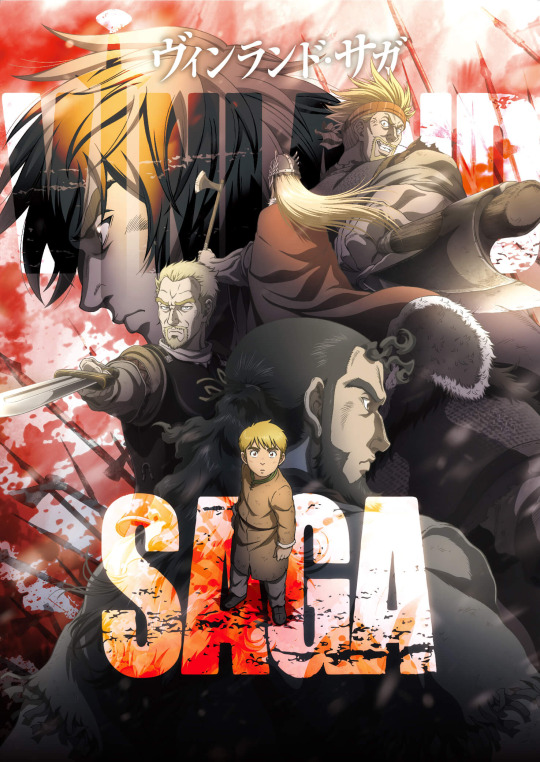
Yet another show that’ll probably be tons of peoples’ favourites, and like the other show that’s got the second or third most enjoyable duo of characters in the form of Askeladd and Thorfinn, Vinland Saga’s yet another show that, surprise surprise, is fucking brilliant! Also I feel like it might be a solid gateway anime, it’s got that sort of brilliant character writing, longform storytelling and steady plot progression, and of course, badass action, that hooks you in really damn well. Plus in its prime it’s one of the prettiest shows this year, the animation especially is probably top 3, and the voice acting is close to the best this year. I should probably rewatch this since it’s fairly heavy on the politics and watching it week by week, sometimes less frequently than that, I didn’t feel 100% in the know all the time, but that’s just me, show’s great, when it comes to every show I talk about in this post you should probably read my tag for them since I’ve covered like every episode of all of these shows in greater depth so.
3. Dr. Stone

Never thought I’d see the day where a Weekly Shounen Jump title would be in my top 3 of a year, let alone the first 9/10 show for me in this list. But Dr Stone’s just such a fantastic time. I’ve talked about this show a lot, and every time I’m selling the key appeal on the show, I’m saying the main thing. Dr Stone operates on 10 billion % gratification all. The. Time. The characters are always working towards something that takes multiple episodes to achieve and the payoff is always super satisfying, but the steady sense of progression is enhanced by the fact that they’re always making things with multiple purposes. So if they want to make a phone, well they’re gonna need to have light, so they need copper wire for lightbulbs, so they need to be able to string copper wire, so they make a cotton candy machine to refine the stringing process, and in making cotton candy they can basically pay villagers to do labour for them, and try to persuade an enemy spy to maybe shift their allegiance a bit. Every single thing has multiple steps and every single step is a satisfying journey that goes towards solving so many more problems than initially presented. That specific way of providing narrative payoff is unparalleled in just how gratifying it is, the show’s incredible at just letting you have fun with it. Helps that the characters are as fun as they are too, main character Senku is a male genius main character but isn’t a toxic cynical cunt that you just want to kill, he’s got a bit of sass but he’s a genuinely nice person who seriously wants to save everyone and isn’t afraid to work admit that. The fact that this isn’t anime of the year is amazing, that’s how great the next 2 shows are.
2. Beastars

What’s more surprising than Shounen Jump being in my top 3? How about the furry anime being my second favourite of the year? Yeah Beastars is fucking ridiculously good, I really don’t want to say too much because my Season in Review for Fall isn’t out yet and I’ve gone in mad depth to Beastars specifically in there which you should read if you care, but TL;DR the character writing is near unparalleled in any show I’ve seen, let alone this year, and specifically the society that the characters live in and the way it impacts them and they impact it, it’s all ridiculously interesting, and if I had to use one adjective to describe how this show explores every opportunity its story and setting present, I’d choose “thorough”. It’s also crazy unpredictable in the wildest ways because so many things happen that you couldn’t possibly expect and yet every single one of them is so easy to immediately accept because just, fuck, this show’s so believable. This fucking edgy Zootopia is one of the smartest shows I’ve ever seen and I’d recommend it to uhhhh anyone.
1. Mob Psycho 100 II

Is it any wonder that the only show this year I gave a 10/10 is my favourite anime of the year lol
And that’s 2019 in TV anime. Fuck movies lol most of them that I want to watch aren’t even out yet. This year was fucking great, yo. I gave one show a 9/10 last year, everything else was 8 or less, but here we have two 9s and miraculously, even a 10. That’s awesome. This year was fucking great. And it’s such a weird list for me because it’s dominated by like, the type of shows r/anime love, as opposed to overwhelming cute girl bullshit like one might expect of me. Hey this is fine though. No idea how proud I am of this post’s writing since I can’t be bothered proofreading it, really I just wanted to make that January 5th date to match last year’s, but I have talked about all of these shows in other places, or will talk more about in the case of Beastars, so like, whatever. If you’re curious about some other random numbers, this top 10 has 2 shows from Winter, 2 shows from Spring, 1 show from Fall, and all of the remaining 5 are from Summer, so uh, I think it’s an easy guess which season was my favourite overall. That’s basically it, but let’s do like 3 more segments just to cover all bases.
Favourite Movie of the Year – Black Fox

I have a review of this, go read it, but TL;DR really fun action movie from one of my favourite studios, with brilliant animation, great character designs, and a plot that, though extremely simple and predictable, is a ton of fun regardless.
Girl of the Year – Miyako Hoshino

This was ridiculously hard to decide but honestly Mya-nee is such a brilliant meme character that I’ll never forget about that I can’t help but pick her. Yeah she’s uhhhhhhhh absurdly creepy in and out of universe, I don’t wanna say the p word in case Tumblr gets mad at me but she sure as shit seems to be that and uh, nah, but hey it’s all fictional so who cares. Funny, also the show’s got a cute art style so Mya-nee’s legit cute and that’s pretty cool. Also she’s voiced by Reina Ueda which fucks with me hard. Also I joked about kinning her for a while so there’s that. She has a lot of strong competitors from this year, even excluding girls I was already attached to by virtue of being from sequels or spinoffs or stuff, but I think I’ve got to give it to her. Plus it’s an excuse to get funny meme show Wataten in this list somehow
Boy of the Year – Crippled Kirito

nah jk
Boy of the Year – Shigeo “Mob” Kageyama

Fr tho his one was also ridiculously hard, perhaps even harder than best girl, which fucks with me because last year best boy was pretty easy and best girl felt like I was choosing a favourite child, but whatever. But like, argh, as tough as it is, it’s gotta be Mob. My boy matured so much in his second season, made me shed so many tears. The first episode of season 2 alone just shows us how far Mob’s come since his humble beginnings in season 1, and even further since he was a shy little child afraid of everything. Argh, he’s so cute too! Mob is an inspiration to us all, let us all be more like Mob.
And yeah that’s actually us done. Cool year.
#sarazanmai#dumbbell#re:Stage#Carole & Tuesday#dororo#given#vinland saga#dr stone#beastars#mob psycho 100#black fox#wataten#sao#5.1.20
193 notes
·
View notes
Text
Brickclub Les Mis 5.1.20
A long chapter, in which Hugo reflects on Progress, and revolution, and the role of public acceptance/ratification of said revolution in its success, and the contradiction of using violence when the endgame is peace+justice, and the glories of martyrdom/exile, and How Awesome France Is.
Plot-wise, he’s throwing out more tantalizing hints of hope, while making it really clear that 1) No help is coming for the barricade fighters, 2) There is no escape for them, and 3) They’re all very much doomed (but in a ‘worthwhile martyrdom’ sort of way, not a ‘this was bad and pointless sort of way’). He’s also walking a very fine line between throwing shade on his contemporaries for not overthrowing the Second Empire and sympathizing with all the reasons most people don’t want to engage in violent insurrection.
No second person pronouns, though Hugo talks about himself in the third person (as he does).
#brickclub#Les Miserables#5.1.20#Vicky Hug's social opinions#or in this case political opinions#both#I somehow don't already have a Hugo/France joke tag#would that be in conflict with#Hugo/Paris OTP#?#and how does that work with Enjolras/France#I am not qualified to answer these questions
4 notes
·
View notes
Text
Today, as a treat, I am going to walk on well-tread ground and rant about how Grantaire symbolizes the People of France. And how it is this that makes this chapter so sublime.
Three chapters before this one, Hugo speaks about how Revolution does not always find a welcome audience. How, without the People. an emeute is just that. It may have loft ideals attached to it, but it must fail. If the people aren't ready, if they lock their doors and rail at the revolutionaries outside in fear and apathy and anger, then nothing can be done.
Hugo admits that this is natural. We must let humans care about their own lives and not just the future. All of this can be handled, as long as in the end Progress continues.
"A people, like a star, has the right of eclipse. And all is well, provided the light returns and the eclipse does not degenerate into night. Dawn and resurrection are synonyms. The reappearance of the light is identical with the persistence of the self." [5.1.20]
This is reflective of Grantaire's apathy, his defining trait as a nihilist. It also reflects Hugo's implication that this is not Grantaire's natural state of being. Remember:
"Besides Enjolras, Grantaire became someone again." [3.4.1]
Not only does this tie Grantaire's existence inextricably with the Revolution, but it implies that this existence is superior, is more natural than his current one.
Grantaire also has more interactions with the People than the rest of les Amis do. See when he was meant to stir up revolutionary ideals and instead went to play dominoes. Yes he failed, but he also reflects the prevailing thought. France was not ready for a revolution. Enjolras ignored this. Lofty ideas could not reconcile themselves to the reality.
All this paints a very bleak picture of course. And yet, in Grantaire's death we get that undeniable hope, which makes it all so beautiful.
We, as real people reading this book, understand that Grantaire is probably still drunk. Yet Hugo impressing upon, insisting upon Grantaire's clarity is so crucial. This, at the moment of his death, is the most lucid Grantaire has been.
Another thing that strikes me, is that thought Grantaire asks permission to die with Enjolras, he seals his own death warrant before doing so, by crying out 'Vive la Republique.' He doesn't actually ask permission to join the movement.
When the People rise, they will do so spontaneously. That crucial ingredient that is missing amongst the population has been lit in Grantaire, and it is a sign of what is to come, it is hope. He's leading the pack with his singular death, and like he measured the mood beforehead, his death can be (and to me is) read as an omen of what is to come. The eclipse - in Hugo's words - will end.
Of course, asking permission to die with Enjolras is also crucial. Not only because of the poetry of them being narrative foils, but because it works as a surrogate for the people of Paris acknowledging the bravery of those who push forward towards Progress while they refuse to budge. Again, as Hugo writes:
"However that may be, even when fallen, particularly when fallen, august are the ones who, all around the world, with eyes fixed on France, struggle for the great work with the inflexible logic of the ideal; they give their life as a pure fit for progress; they accomplish the will of Providence; they perform a religious act." [5.1.20]
Through Grantaire's death, the People come out of their fear and recognize this. Not literally, but in spirit. And if not to all of us, then to Enjolras.
Because Enjolras is, of course, crucial to this reading. Speaking of Grantaire as the People when he is merely one of many characters who are the People, it's important to ask for whom is he? Because he's certainly not for Valjean. Or Marius. Or Cosette. Or Javert. Or even the National Guards or the King or perhaps not even to the audience (if you think I'm overdoing it I respect it). But he is to Enjolras.
Enjolras is stoic throughout the whole ordeal. He speaks of glory in death. He is still devoted to his mistress, Patria. And yet his ideals have been shattered. The People were not ready. The Revolution will not come. He will die bravely, but he will have failed.
But then Grantaire stands up and says he's with them and requests permission to die by Enjolras' side.
And in that moment Enjolras' convictions are justified. If someone who has been the object of scorn, who has been apathetic, who has done little at all except annoy Enjolras and fail to stir up revolutionary thought; if Grantaire can rise up and die with him, then others will too. Perhaps not now, but in the future.
Grantaire becomes someone again when he dies next to Enjolras. And someday the people will rise.
#for every barricade that falls one hundred will rise tomorrow I'm sorry I'm so emotional lol I hope y'all like this absolute sea of words#les miserables#les mis letters#enjolras#grantaire#enjoltaire#1.5.23#bern speaks
114 notes
·
View notes
Photo

#niall horan#instagram#5.1.20#shine a light#mcfly#quarantine#awwww#supportive#instagram comments#sandy beales#jon shone#josh devine
3 notes
·
View notes
Photo

instagram
#ok#pero ponga#esa lengua#en su sitio#vanessa vanjie mateo#vanjie pics#instagram#rupaul's drag race#miss vanjie#vanessa vanjie#rpdr s11#rpdr s10#5.1.20
5 notes
·
View notes
Text


staring a new project tonight! i’m making a baby blanket for my brother and sister in law! they’re having a baby :,)
the bab isn’t due until june, but i wanted to get a head start on the blanket because i’m super busy all the time
i’m using some really wonderful berroco vintage in fennel! the pattern is olympic forest baby blanket, by verybusymonkey on ravelry. my brother + SIL’s theme is camping and this blanket pattern fits just perfectly!
do you ever start a project with a pattern you’ve never done before, and start working through the beginning of it and you spend the entire first few rows going “oh god oh no oh god have i fucked this up??? i’ve fucked this up haven’t i”, and then you get to a point where everything clicks and works out perfectly? yeah that was me like five minutes ago as i prayed i did the correct amount of yarn-overs and such to get things to line up
thankfully, everything has worked out perfectly so far! this will be my first project with cables, so there’s still plenty of time for things to turn into a total disaster! but i have hope! it will be a blanket!
#my projects#knitting#baby blanket#knitblr#it will be a blanket#5.1.20#i have to finish reading my book for my book report + i was gonna knit while i did that#but i think this project may be a tad bit too complicated for that rn??#we’ll try it#borking
2 notes
·
View notes
Text
Brick Club 5.1.20, 5.1.21

“When the condition of affairs was not ripe, when the insurrection was not decidedly acceptable, when the mass disavowed the movement, it was all over with the combatants.” I really hate the argument that ‘people aren’t ready for change’ because it’s never more than an excuse to dismiss entire movements with no reasonable basis. A better (correct) way to say it is ‘some people don’t want things to change’ and why should they since they already have power and money and whatever. “‘What do these people want? They are never contented.’”
“A people does not allow itself to be used.” Don’t they? Because if they aren’t being used to further social justice and wellbeing, then they’re being used to suppress it. Sorry, but that’s just true! You don’t get to pretend there’s a third option, like Hugo so often does. These are the “madmen of moderation.” I’m not at all in the mood to hear Hugo’s platitudes that Progress will always rise again. What I’m waiting for is not Progress, it’s for those people to stop thinking it’s always too soon for change, because they’re the actual opposition. “[Utopia] compromises her heroism by a violence of opportunity and of expediency, contrary to principles, and for which she is fatally punished.” Only, there will never be a right time and opportunity to some people and, if that weren’t the case, it wouldn’t ever take an insurrection to propel change. People die and suffer now and it’s apparently still too soon to change things. If any of this was true, there would be no successful revolutions and all progress would take place peacefully and steadily and never regress. Hugo’s on the right side of things but, as always, his methods leave a lot to be desired in my opinion. I haven’t forgotten his recommendation from 1848 that the wise should actively suppress revolution if they believe it isn’t the right time in order to save the masses from themselves. “No violent remedy is necessary. Study evil lovingly, determine it, then cure it. To that we urge.”
I think this next bit is Hugo trying to make some questionable sweeping claims about art, culture, and…trade? He says, “Art, which is the conqueror, must have its fulcrum in science, which is the mover” and “hieratic and or mercantile absorption diminishes the radiance of a people.” This is a little bit complicated because Hugo is functionally advocating imperialism while not understanding that imperialism is the driving force for the materialism he decries. Carthage is bad because it trades goods, but Athens is okay because it…conquers other peoples for access to their material goods? Art and science as vehicles for imperialism is an uncomfortable thought, but the reality is art and science are neutral concepts, not inherent sources of sublime progress as Hugo seems to indicate, and can be used to glorify and justify any agenda. For every palace of Versailles there’s a Liberty Leading the People. This framework of Hugo’s wades a little too far into undiluted philosophy for my taste; he errs too heavily to the side of art is how I could phrase my reservation with his final thesis.

“On both side equal resolution. Bravery there was almost barbaric, and was mingled with a sort of heroic ferocity which began with sacrifice.” And Marius is doing some stellar heroic sacrifice. I’ve soured a lot on the glorification of sacrifice as a trope very recently, particularly where it’s used as a shorthand to convey heroism without any other consideration for context (thank you to a very specific show for ruining that for me). Marius is being brave and heroic, sure, but he’s also desperately hoping to be killed and this bravery is just the thinnest veneer over wanting his death to at least be in service of something, anything. He isn’t really being brave because he believes the cause is worthy of his bravery. He does want to protect his friends but that was barely a thought in his mind when he joined the barricade to begin with. How heroic is your sacrifice when you’re already suicidal? In the words of Quentin Coldwater, who was recently treated to this trope: “Did I do something brave to save my friends, or did I finally find a way to kill myself?”
The fact that Marius survives is...something, but it also carries a load of other thematic implications that are questionable at best and completely antithetical to the point of this book at worst. Again, the use of heroic sacrifice is highly contextual and needs to be employed thoughtfully.
“There are some people who observe the rules of honor as we observe the stars, from afar off.” I want to do the rhetoric gymnastics to connect this to Javert and stars and rigid lawfulness and resistance to change but I think I just did it right there.
In the end, Enjolras is the only member of the ABC left, every lieutenant left is killed in one fatal sentence. “But to be superb…it is enough to give life for a conviction or for a loyalty.” Oh, is that all?
#brickclub#les mis#les miserables#5.1.20#5.1.21#hugo voice sometimes the downtrodden and suffering just get overexcited#let me use my fictional barricade of fictional characters to prove my point#anyways im still bitter about the magicians and i always will be#the sacrifice of enjolras and the abc is leagues different from what marius is doing#and i think thats important to recognize
4 notes
·
View notes
Text
The Dead Are in the Right and the Living Are Not in the Wrong
“The death agony of the barricade was about to begin.”
The city was silent. It did not come out in support of the barricades. The people were not ready for revolution because they were a product of their time.
That does not mean that progress was not still being made.
The success or failure of an insurrection depends largely on how it is received by the people.
#a year of les mis#volume v jean valjean#book 1 the war between four walls#chapter 20 the dead are in the right and the living are not in the wrong#5.1.20#318/365#Les Miserables
0 notes
Text

Jeffrey in Cameron Azoff’s Insta Story. 5.1.20
55 notes
·
View notes